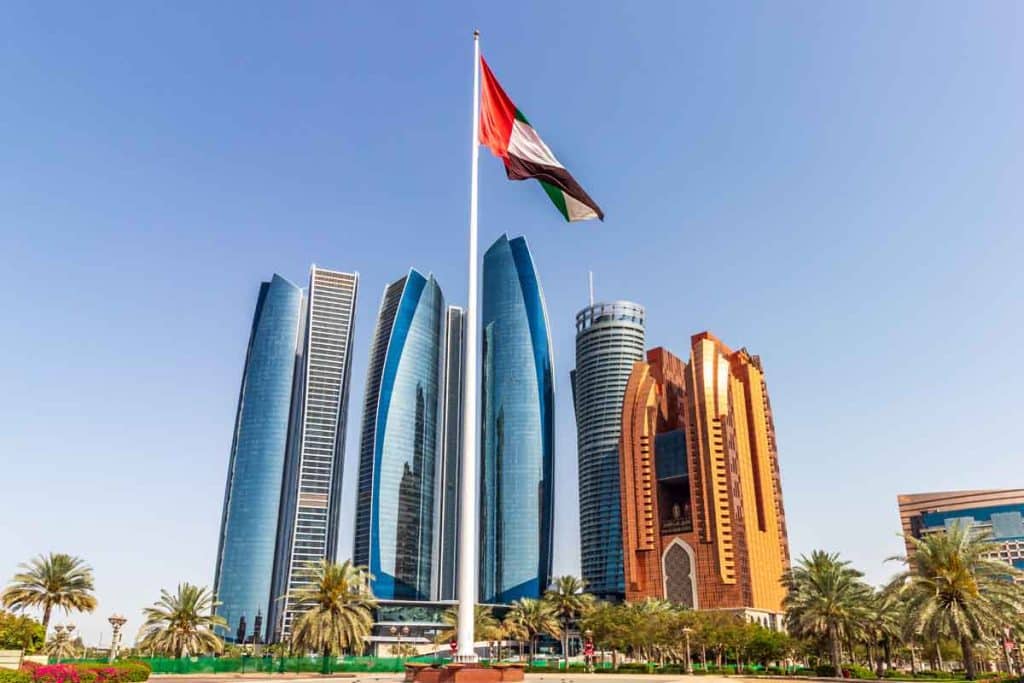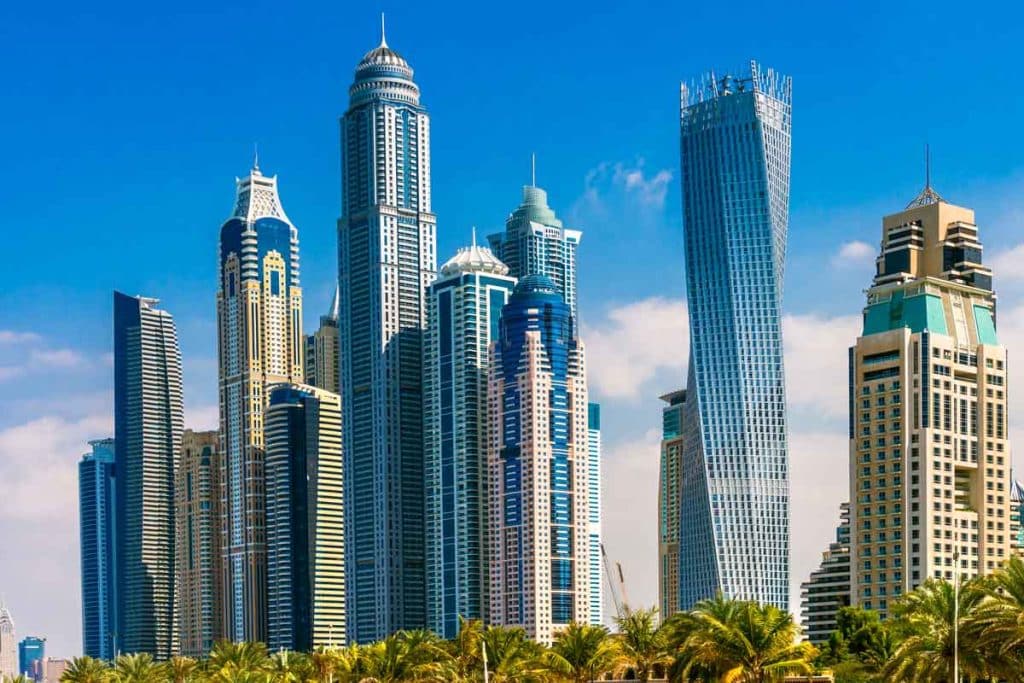Activity levels within the UAE’s real estate market remained solid over the final quarter of 2023, and this continues to drive performance, according to analysis by CBRE.
Looking at the UAE’s office sector figures, given a marked increase in demand, rental performance in Abu Dhabi’s occupier market has surged, with average Prime, Grade A, and Grade B rents recording growth rates of 0.5 per cent, 3.4 per cent, and 4.8 per cent, respectively, in the year to Q4 2023.
In Dubai, the total number of Ejari registrations reached 47,234 in Q4 2023, a 34.7 per cent increase from the previous year.
UAE real estate
The current market conditions have pushed average occupancy rates to 92.6 per cent as of Q4 2023, up from 88.1 per cent a year earlier.
Driven by increased take-up and limited stock availability, average Prime, Grade A, Grade B, and Grade C office rents in Dubai increased by 8 per cent, 13.3 per cent, 18.2 per cent, and 20.3 per cent, respectively, in the year to Q4 2023.
Occupier activity has originated from a diverse range of sectors, in both Free Zone and Non-Free Zone locations.
The pharmaceutical and financial services sectors, and particularly hedge funds and asset management firms for the latter, have been the two prominent sectors of demand.

In the residential sector, average apartment prices in Abu Dhabi increased by 1.1 per cent in the year to Q4 2023, whereas average villa prices remained almost unchanged from the comparable period a year earlier.
Rental activity in Abu Dhabi experienced a slowdown, with the total number of registrations in the last quarter of 2023 decreasing by 12.6 per cent year-on-year.
This decline was driven by an 18.4 per cent drop in renewed rental registrations and a 2.2 per cent decrease in new contracts registered.
Despite the slowdown in activity, average apartment rents still managed to rise by 2 per cent year-on-year, reaching AED64,996 ($17,700).
Over the same period, villa rents also saw a slight increase of 0.8 per cent, reaching an average of AED163,098 ($44,400).
Looking ahead, approximately 4,438 new residential units are expected to be completed in the coming year, with 69.1 per cent expected to be delivered in Yas Island and Al Maryah Island.
In Dubai, average residential prices increased by 20.1 per cent in the year to December 2023, with apartment and villa prices rising by 19.8 per cent and 21.8 per cent, respectively.
In the rental market, a continued moderation in the rate of growth has been witnessed throughout the year, where average residential rents rose by 18.9 per cent in the year to December 2023, down from the 19.2 per cent growth registered in November 2023.
In 2023, a total of 39,190 residential units expected to have been delivered, with 34.4 per cent of this new stock estimated to have been completed in Meydan One, Downtown Dubai, and Business Bay.

A further 68,880 units are expected to be handed over in 2024, with 22.7 per cent scheduled for delivery in:
- Business Bay
- District Seven
- Damac Lagoons
Looking at the hospitality sector, the total number of hotel visitors in Abu Dhabi reached 4.94m in 2023, marking a 29 per cent year-on-year increase and a 9.9 per cent increase from the pre-pandemic levels.
Similarly, in 2023, Dubai saw a 19.4 per cent rise in international visitors compared to 2022, bringing the total to 17.15m.
Given these elevated visitation levels, the UAE’s average occupancy rate rose by 4.5 percentage points year-on-year in 2023.
Over the same period, the average daily room rate (ADR) grew by 2.6 per cent, and revenue per available room (RevPAR) saw a 9 per cent increase, highlighting the strong performance of the hospitality sector.
Looking ahead, the UAE’s position as a global tourism and business hub, coupled with relaxed visa regulations, are expected to continue to drive growth in this sector’s key performance indicators (KPIs).
In the retail sector, leasing activity in Abu Dhabi’s market slowed down in the last quarter of 2023, with the number of rental contracts registered dropping by 6.5 per cent compared to the same period in 2022 to reach 6,913.
This decline was driven by a 3.4 per cent decrease in new contracts registered and a 7.9 per cent drop in renewals.

Over the same period, Dubai’s retail market saw a marginal 0.7 per cent increase in total rental registrations, reaching 17,894.
However, within this, new registrations declined by 7.7 per cent, while renewals grew by 5.6 per cent.
Despite the mixed performance in leasing activity, rental rates have risen across both cities.
In Abu Dhabi, in the year to Q4 2023, average rents grew by 10.7 per cent to reach AED2,075 ($565) per square metre.
Dubai saw an even stronger increase of 17.6 per cent, with average rents reaching AED490 ($133) per square foot.
This growth reflects strong demand, particularly from the Food and Beverage sector, which includes both established international brands and a rising number of homegrown players expanding within Dubai and globally.
However, a potential challenge lies in the limited availability of quality retail space. This lack of available space in desirable locations could hinder market activity in the future.
Activity in the UAE’s industrial and logistics market remained strong despite the limited stock availability.
This has resulted in a more landlord-favoured market where occupiers are pressured to comply with landlords’ lease demands, and offered incentives are relatively constrained.

In Abu Dhabi, the total number of rental contracts registered in the year to Q4 2023 saw a 15.3 per cent increase.
Over this period, new registrations increased by 24 per cent, and renewed contracts rose by 9.6 per cent.
In Dubai, the total number of rental registrations marginally declined by 0.04 per cent year-on-year according to Dubai Land Department data.
Despite the heightened levels of demand but significantly depleted levels of available quality stock, CBRE said new contracts registered fell by 26.4 per cent, while renewals rose by 18.8 per cent.
The persistent supply-demand imbalance continues to drive rental growth in both cities.
In the year to Q4 2023, average rental rates in Abu Dhabi and Dubai grew by 7.3 per cent and 14.8 per cent, respectively.
As of Q4 2023, average asking rents stood at AED407 ($111) per square metre in Abu Dhabi and AED43 ($12) per square foot in Dubai.
Given these market dynamics, CBRE said it expects rental rates will continue to improve in the UAE’s industrial and logistics sector, albeit at a slower pace.
New institutional-grade stock is anticipated to reach record-high rates.

Taimur Khan, Head of Research – MENA at CBRE in Dubai, said: “The UAE’s real estate market concluded another stellar year, with performance and activity levels reaching multi-year, if not historic, record highs in many sectors.
“Attention will now turn to the outlook for 2024, where, albeit reduced, but still material global economic headwinds are underlining concerns as to what extent these levels of performance could continue.
“Even with potential global economic downside risk, we anticipate that both performance and activity levels will resilient over the course of this year, albeit with growth rates expected to moderate in a number of sectors.”






